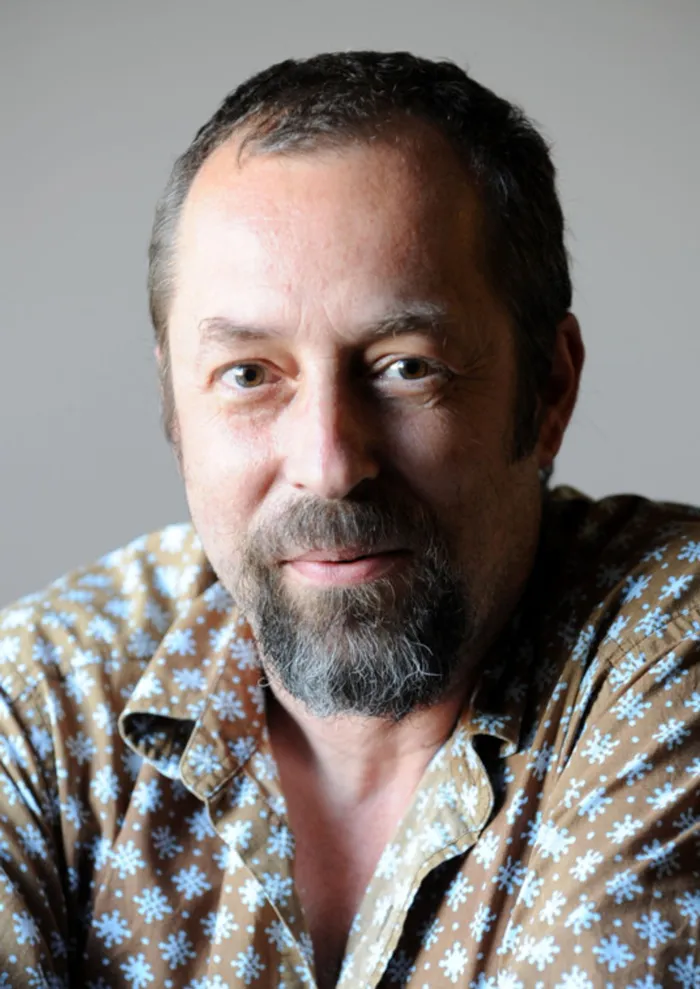Man about Town

Cape Town. 260210. Colummists Rory Williams. Cape Town. 260210. Colummists Rory Williams.
Muizenberg beachfront is one of those rare places in Cape Town that attracts people of all ages and backgrounds from across the city. A public place where people allow the beach and the promenade to mediate their comfortable interaction. Where walkers, skateboarders, swimmers, picnickers, sun worshippers and Rastas not only coexist, but seem to thrive on the different kinds of energy each of them brings to this former holiday resort.
Perfect for a barefoot lunch with John Cartwright, who has helped shape the Muizenberg Improvement District and wants to change the way people think about community safety.
He writes with friend and colleague Clifford Shearing in their book Where’s the Chicken? that we need to start asking different questions if we want lasting solutions to crime. Creating a safer society, they say, is not about best practices, but about best thinking, “which keeps leading us to unexpected and interesting places – a better tomorrow”.
As we sit next to Gary’s Surf Shop, John is telling me about some of the challenges faced by City Improvement Districts (CIDs) that try to improve safety. He has ideas for “place management” that could be applied in situations where a full CID might not work. A conventional CID needs businesses that are willing to pay a levy that funds its operations, but there are only 20 or so in Cape Town.
Residents generally are unwilling to support a CID where they live, and are more likely to run a neighbourhood watch or fund a security system with patrols and CCTV cameras. But these are simply trying to catch criminals in the act, or chasing people who look suspicious. More effective could be teams of neighbourhood safety officers trained to interact with business owners and residents, to better understand local dynamics.
It’s not that neighbourhood watch is wrong, but that it needs to look at the little things that might breed crime, like insufficient activity on streets, or inadequate lighting. John is working with the provincial Department of Community Safety with test cases in Saldanha Bay and Prince Albert communities to see how training can improve safety in practice.
This teaches participants how to be better observers of things that crime prevention usually ignores, and to undertake surveys of things like broken street lights and other maintenance problems. They are encouraged to take this information to the appropriate official in the local municipality, and to keep going back until an action is taken – to hold officials accountable.
By interacting and being proactive, they can learn more about how the community works and what makes people feel unsafe, or ignored or disrespected. When it becomes apparent that nobody cares about their neighbourhood – neither the municipality nor the residents themselves – then warning bells should be going off to indicate that safety is under threat.
John uses the example of community vegetable gardens to illustrate the importance of thinking beyond traditional roles. Gardens don’t only improve health and provide income-generating opportunities. They also generate the social interaction that gets people talking with others in their neighbourhood, creating shared experience – something that can turn a bunch of individuals into a connected community.
This connection is part of what the Violence Prevention Through Urban Upgrading (VPUU) programme has tried to achieve. Started in Khayelitsha in 2006 with funding from the German Development Bank, VPUU uses urban design interventions to reduce violent crime and improve social conditions.
It has adopted principles like improving visibility to make criminals feel exposed, encouraging residents to get involved in patrols, and instilling pride in well-managed and maintained environments.
In Friday’s provincial budget speech, it was announced that R15 million this year would be allocated to four regional socio-economic pilot projects in Witzenberg, George, Drakenstein and Nyanga, along the lines of the VPUU programme. The question is whether these projects can be scaled up and replicated, given the limited scope of VPUU after seven years. I suspect that the answer may depend on whether the project managers grasp what John is saying about using local community knowledge and resources.
A top-down approach is susceptible to misinterpretation of needs, and the development of inappropriate responses. And then there is the complexity of Western Cape politics, which can scupper the best-laid plans. Empowering the individuals that make up a community is surely the most effective antidote to political gatekeeping.
@carbonsmart